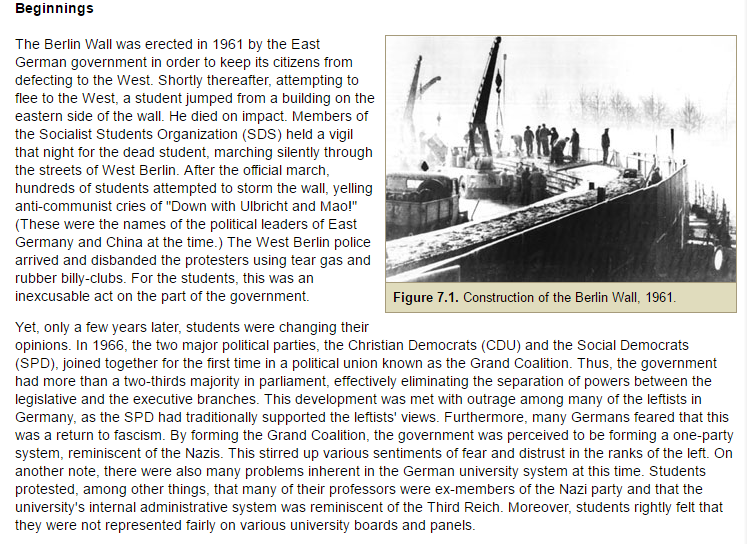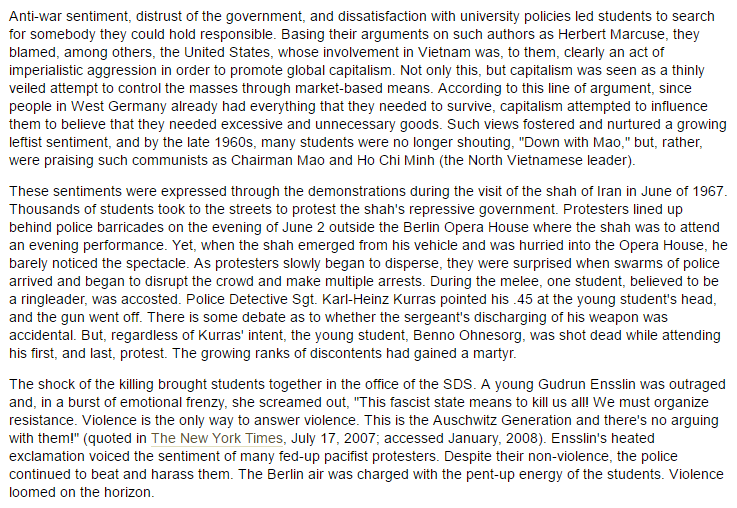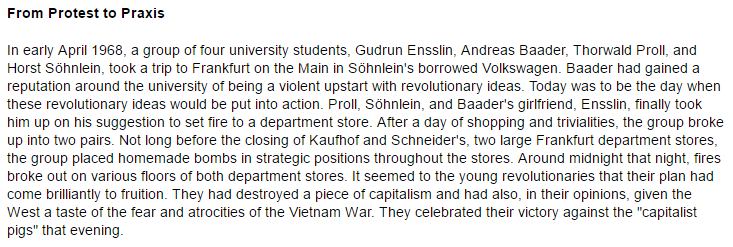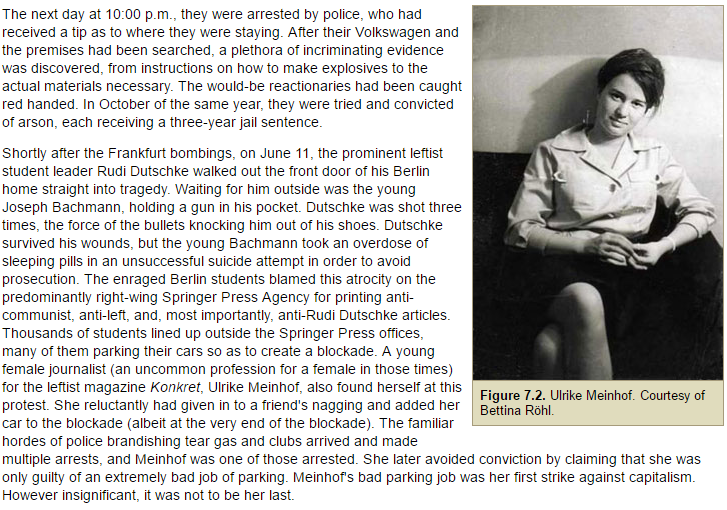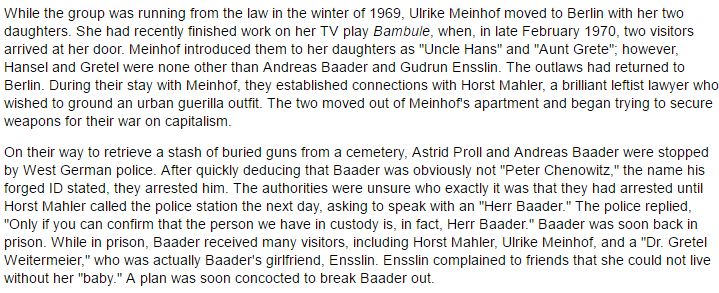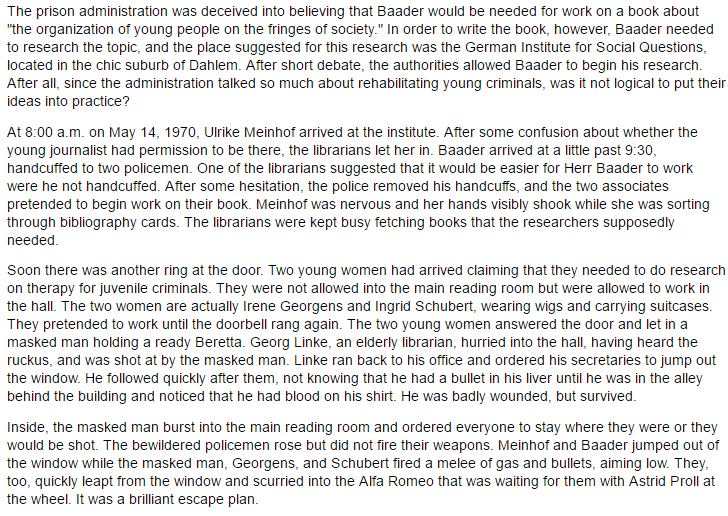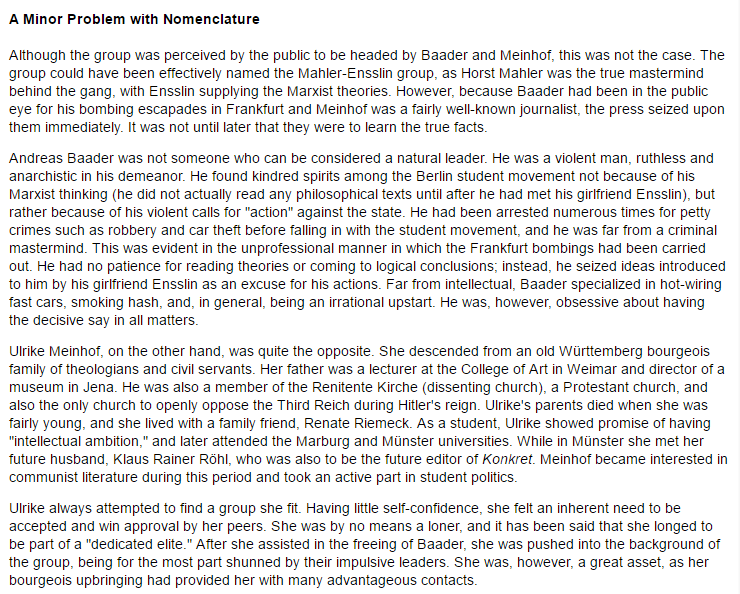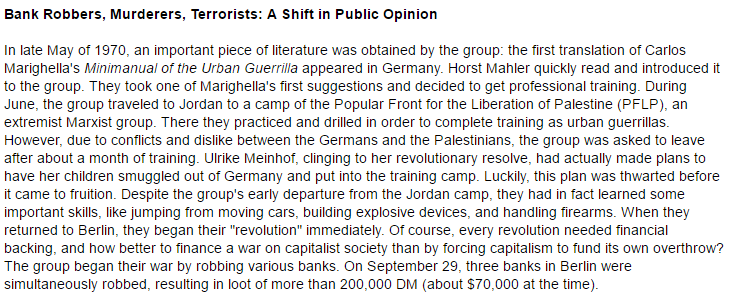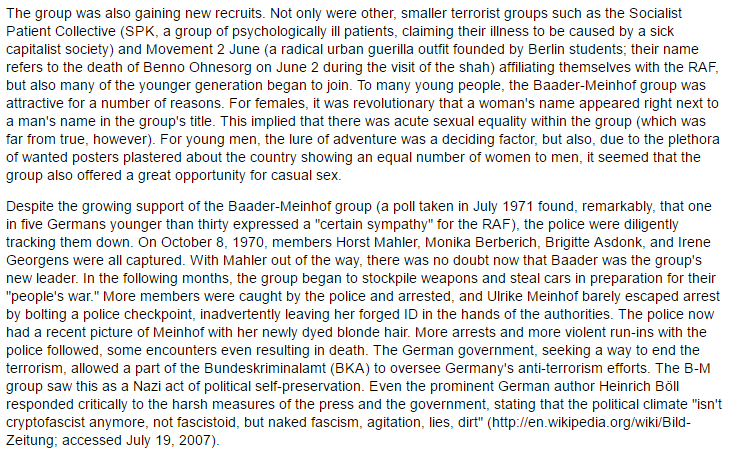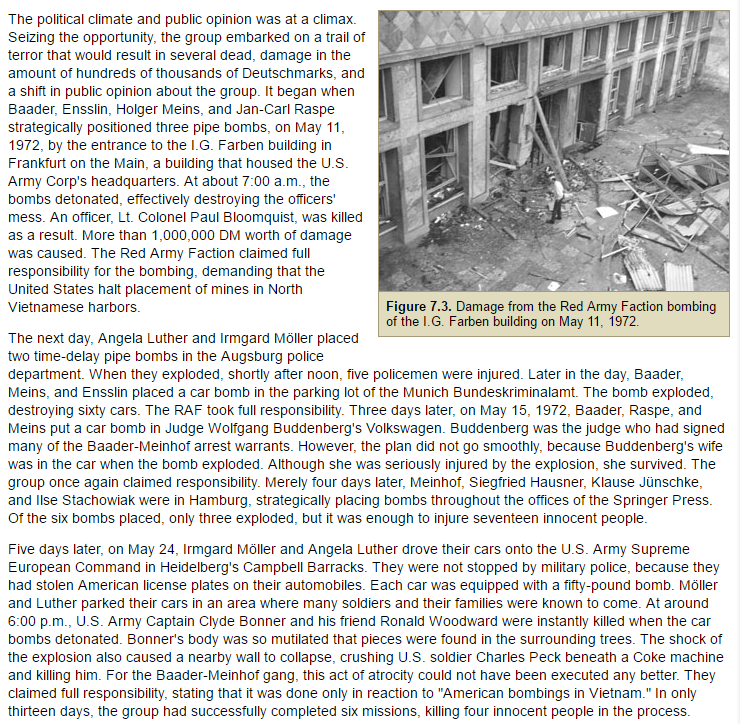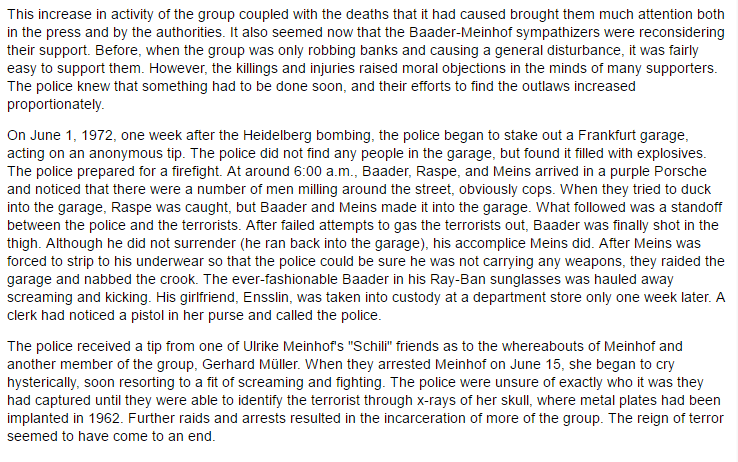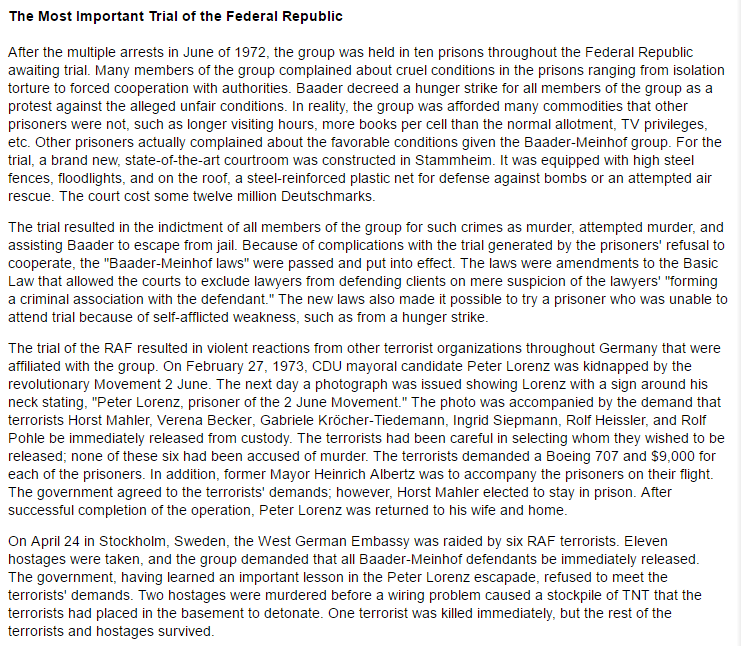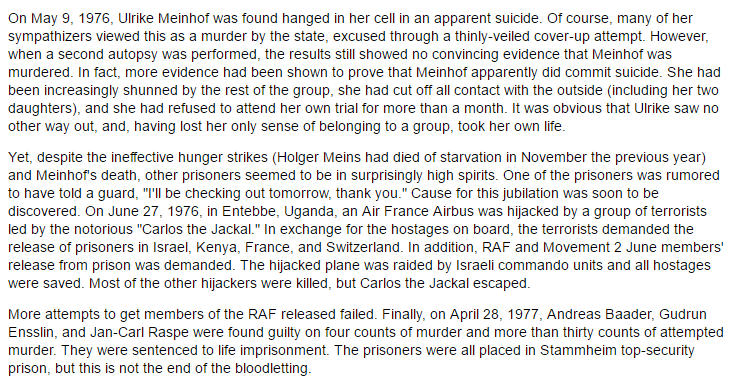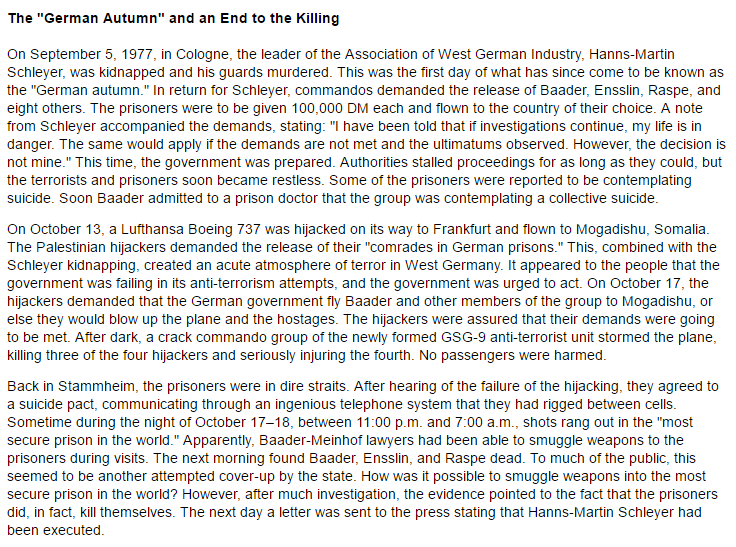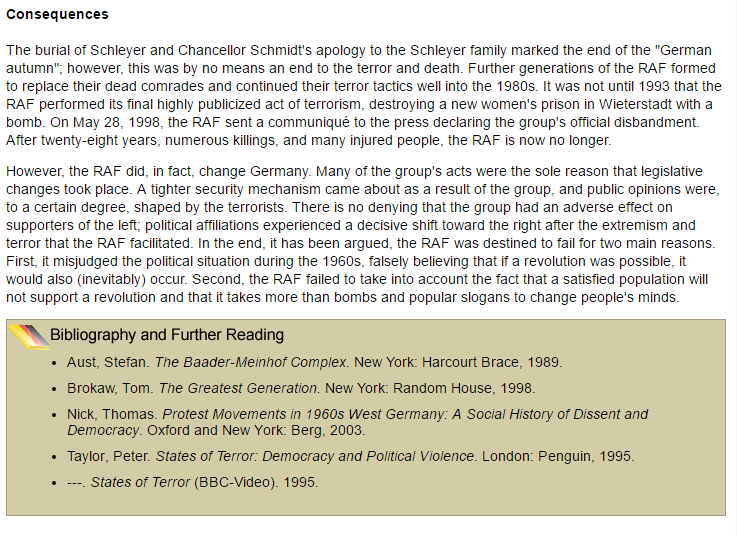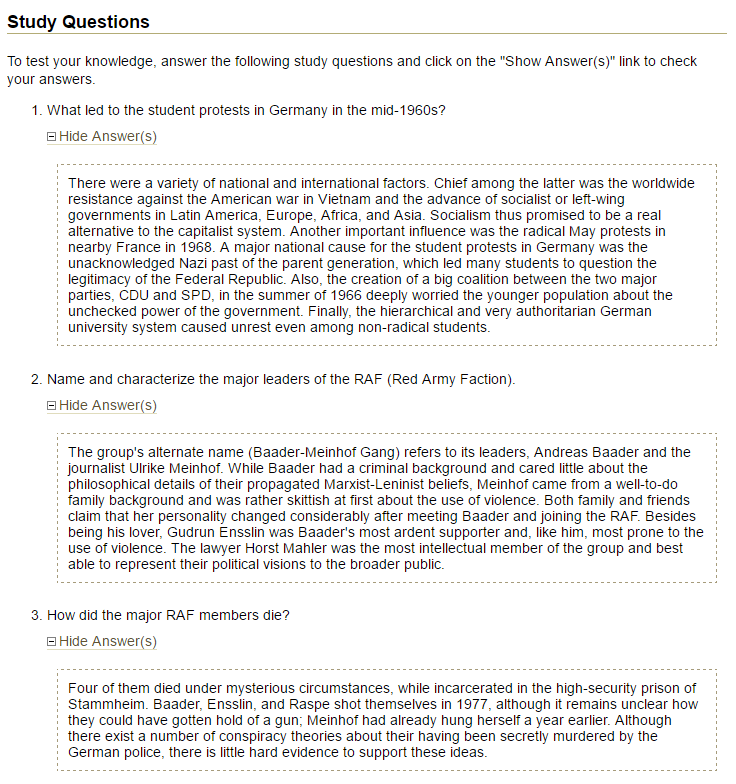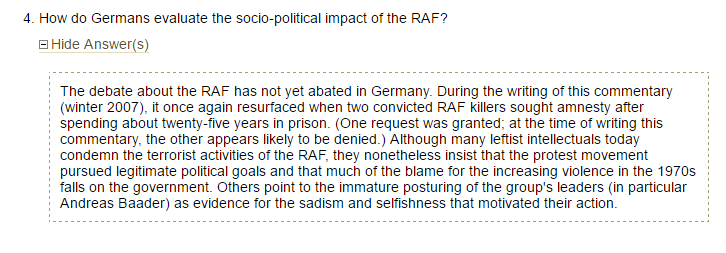German History Paper
Lesson 7: The Student Movement and German Terrorism Lesson EssayWhen you can accomplish the learning objectives for this lesson, you should begin work on the lesson essay described below. You may use any assigned readings, your notes, and other course-related materials to complete this assignment. Be sure to reread the essay grading criteria on the Grades and Assessments page.
This essay should be about 750 words long, typed double space with one-inch margins on each side. It is worth 100 points and should address the following:
What was the role of the United States during the German student movement of the late 1960s? In your answer, you should briefly mention the post-war relationship of the two countries and then explain why and how it changed in the 1960s. You might ponder some of the following questions: How did the German student movement differ from its American counterpart? How was the United States perceived by German students? Do you think the German students' perception of America was basically correct or rather distorted? How so?
Learning ObjectivesAfter completing this lesson, you should be able to do the following:
Describe the overall political situation in Germany during the 1960s.
Situate the German student protest internationally.
Provide a chronology of the political events that led to increasing militarization of the student movement.
Characterize the major leaders of the Red Army Faction (RAF).
Detail the events that led to the famous "German autumn" of 1977.
The years between 1968 and 1977 were a tumultuous time for West Germany. Referred to by some as the "crisis years," this period represents an era of revolt, rebellion, and revolution in German history. The younger generation argued that Germany had failed to "work through" the Nazi past. They rightly suspected that Nazi sympathizers and collaborators had largely gone unpunished and still occupied positions of power in the Federal Republic. More importantly, however, students also claimed to recognize the same authoritarian mentality in public Germany that had led to the rise of Nazism several decades earlier. This belief, together with widespread opposition to the Vietnam War and to unfair university policies, brought students and political activists together, voicing anti-war and anti-capitalist sentiments through protests in various cities throughout the country. Nowhere was the spirit of rebellion so prevalent as in West Berlin. In this island of democracy, revolts and protests escalated alarmingly. Marked by various scuffles between students and police, these conflicts reached a violent culminating point in April 1967, when two Frankfurt department stores burst into flames. Shortly thereafter the German Press Agency received a frantic phone call from a university student, Gudrun Ensslin, claiming emotionally that this had been no accident. This was "a political act of revenge!" It also marked the beginning of West German terrorism.
